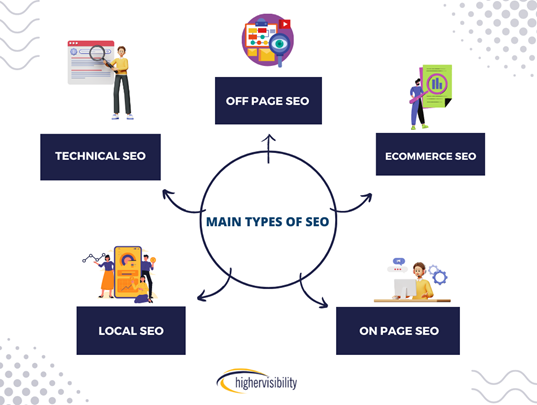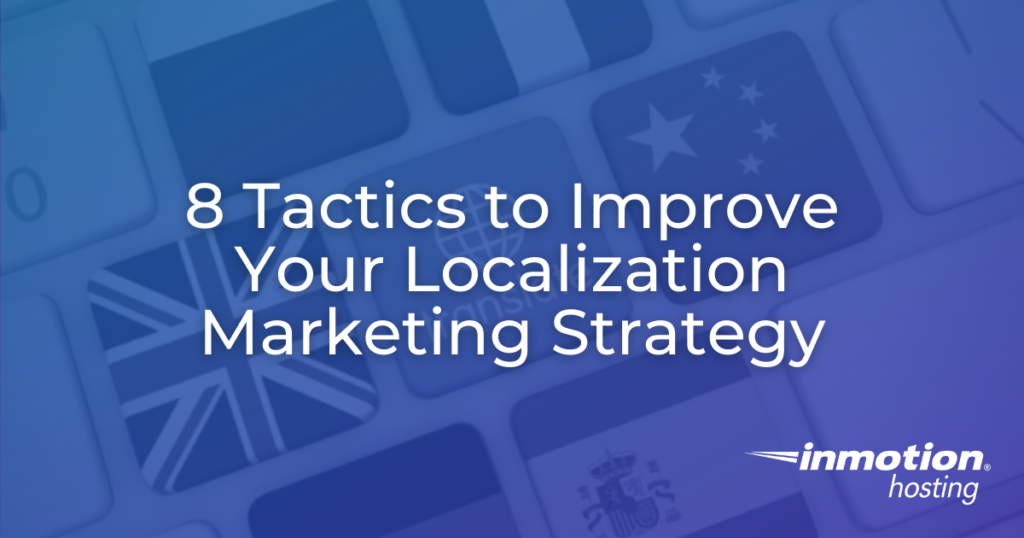Uncover the strategies that will help you dominate local markets with SEO localization tactics. Don’t miss out on this!

Image courtesy of via DALL-E 3
Table of Contents
Introduction to SEO Localization
SEO Localization is a crucial strategy that helps websites connect with local markets, making them more visible and appealing to local customers. By optimizing content to target specific geographic locations and languages, businesses can improve their online presence and attract relevant traffic.
What is SEO Localization?
SEO Localization is the process of optimizing a website to target specific regions or languages, ensuring that it appears in local search results. This involves incorporating local keywords, creating region-specific content, and tailoring the website to meet the needs and preferences of local audiences.
Why is SEO Localization Important?
SEO Localization is important for businesses looking to reach and engage with local customers. By implementing this strategy, companies can increase their visibility in local search results, attract more relevant traffic, and build credibility within the community. This targeted approach helps businesses connect with their audience on a more personal level, ultimately leading to improved brand loyalty and higher conversion rates.
Understanding Your Local Audience
In order to effectively reach and connect with your local market, it’s crucial to understand your local audience. By knowing who you’re trying to reach, you can tailor your content and marketing strategies to better appeal to them. Let’s delve into how you can identify and understand your local audience.
Who Are They?
Your local audience is the group of people in the specific area where your business operates or targets its products or services. They can be diverse in terms of demographics, interests, and behaviors. To identify your local audience, consider factors such as age, gender, income level, education, lifestyle, and purchasing habits. Conducting surveys, studying local market reports, and analyzing social media insights can help you paint a clearer picture of who your local audience is.
What Do They Like?
Understanding the preferences and interests of your local audience is essential for creating content that resonates with them. Market research plays a key role in uncovering what your local audience likes. This can include analyzing trends in your industry, conducting focus groups, monitoring social media conversations, and studying competitor strategies. By knowing what appeals to your local audience, you can tailor your messaging and offerings to better meet their needs and desires.
Where to Find Them?
Connecting with your local audience involves being present where they are. This could mean having a physical presence in the community, participating in local events, or engaging with them on digital platforms. Consider local search engine optimization (SEO) strategies to make it easier for your audience to find you online. Utilize social media channels, local directories, and community forums to engage with your local audience and build relationships. By being where your audience is, you can strengthen your connection and increase your chances of attracting and retaining local customers.
Keywords for Local SEO
In this section, we will discuss the importance of using relevant keywords in your content to improve your local search engine optimization (SEO) efforts. By understanding how to find and use local keywords effectively, you can increase your online visibility and attract more local customers to your business.

Image courtesy of www.highervisibility.com via Google Images
Finding the Right Keywords
When it comes to local SEO, using the right keywords is crucial for helping search engines understand the context of your content and connecting you with local users. To discover local keywords, you can utilize various SEO tools such as Google Keyword Planner, SEMrush, or Ahrefs. These tools provide valuable insights into the search terms people in your target location are using when looking for products or services like yours.
Using Keywords Effectively
Once you have identified the local keywords relevant to your business, it’s essential to strategically integrate them into your website content. Incorporate these keywords in your page titles, meta descriptions, headers, and body content to signal to search engines that your site is relevant to local searches. However, avoid overstuffing your content with keywords, as this can have a negative impact on your SEO rankings.
Optimizing Your Website for Local Searches
When it comes to optimizing your website for local searches, on-page SEO plays a crucial role. On-page SEO involves making changes directly on your website to improve its visibility to search engines. This includes optimizing meta tags, headers, and content to target local keywords relevant to your business.
Creating Local Content
To attract local customers, it’s essential to create content that resonates with your target audience. This means incorporating local keywords naturally throughout your website and blog posts. By addressing local topics and events, you can show your commitment to serving the community and increase your chances of appearing in local search results.
Mobile Optimization
With the rise of mobile searches, optimizing your website for mobile devices is now more important than ever. Ensure that your site is responsive and loads quickly on smartphones and tablets. Google prioritizes mobile-friendly websites in search results, making mobile optimization a must for local businesses looking to reach customers on the go.
Leveraging Google My Business
Google My Business (GMB) is a powerful tool that can help your business improve its online visibility and connect with local customers. By utilizing GMB effectively, you can boost your local SEO efforts and stand out in local search results.

Image courtesy of asmarketingagency.com via Google Images
Setting Up Your Google My Business Profile
Setting up your GMB profile is the first step towards enhancing your online presence. Start by creating or claiming your business listing on Google. Provide accurate and detailed information about your business, including your address, phone number, website, and hours of operation. This information helps Google match your business with relevant local searches.
Optimizing Your GMB Profile
Once your GMB profile is up and running, optimize it to make it more appealing to potential customers. Add high-quality photos of your business, products, and services. Write a compelling business description that highlights what makes your business unique. Encourage satisfied customers to leave positive reviews, as these can boost your credibility and attract more customers.
Managing Reviews and Interactions
Customer reviews play a crucial role in shaping your online reputation and influencing potential customers. Monitor and respond to reviews promptly, thanking customers for positive feedback and addressing any concerns or complaints in a professional manner. Engage with customers by answering questions, providing updates, and sharing relevant information about your business to build a strong rapport with your audience.
Building Local Backlinks
Backlinks play a crucial role in improving your website’s visibility in search engine results. When it comes to local SEO, building local backlinks can significantly enhance your online presence within your community. Let’s delve into what backlinks are and how you can acquire them from local sources.
What Are Backlinks?
Backlinks, also known as inbound links or external links, are hyperlinks on other websites that direct users to your site. Search engines like Google view backlinks as votes of confidence in your content. The more reputable websites linking to yours, the more authority and credibility your site gains in the eyes of search engines.
How to Get Local Backlinks
1. Partner with Local Businesses: Collaborating with neighboring businesses or organizations can lead to natural backlink opportunities. Sponsor local events, offer discounts to local customers, or participate in community initiatives that can earn you backlinks on their websites.
2. Join Local Directories: Ensure your business is listed on local online directories like Yelp, Yellow Pages, or Chamber of Commerce websites. These listings not only provide valuable information to potential customers but also serve as backlinks to your site.
3. Create Local Resource Pages: Develop informative content relevant to your community, such as local guides, event calendars, or directories. Other websites looking to provide value to their audience may link back to your resource pages, boosting your local backlink profile.
4. Guest Post on Local Blogs: Reach out to local bloggers or news outlets within your area to contribute guest posts or articles. By offering unique insights or expertise, you can secure backlinks to your website within the content you provide.
5. Engage with Local Influencers: Identify local influencers or content creators who resonate with your target audience. Collaborate with them to create content or promote your products/services, which can lead to valuable backlinks from their websites or social media platforms.
By actively seeking and cultivating local backlinks, you not only improve your site’s SEO performance but also strengthen your ties within the community. Remember, quality over quantity is key when it comes to backlinks, so focus on earning links from reputable and relevant sources to maximize your local SEO impact.
Tracking Your Progress
When it comes to measuring the success of your local SEO efforts, there are some key metrics you should keep an eye on. One of the most important is your website’s organic traffic. This metric shows you how many visitors are finding your site through search engines like Google. By monitoring your organic traffic, you can see if your SEO strategies are driving more visitors to your site.

Image courtesy of www.inmotionhosting.com via Google Images
Another essential metric to track is your keyword rankings. These show you where your website appears in search engine results for specific terms. By monitoring your keyword rankings, you can see if your efforts to optimize your site are paying off and identify areas for improvement.
Conversion rate is another critical metric to track. This metric shows you the percentage of visitors who take a desired action on your site, such as making a purchase or filling out a contact form. By monitoring your conversion rate, you can see how effectively your website is converting visitors into customers.
Using Analytics Tools
To track these important metrics and more, you can use analytics tools like Google Analytics. Google Analytics provides valuable insights into your website’s performance, including information on your audience, traffic sources, and user behavior. By using tools like Google Analytics, you can gain a deeper understanding of how your local SEO efforts are performing and make data-driven decisions to improve your strategy.
Tips for Continued Success
One of the most critical tips for long-term success with SEO localization is to stay updated with the latest trends and changes in the digital landscape. Search engine algorithms are constantly evolving, and keeping abreast of these changes can ensure that your website continues to rank well in local search results. Make it a habit to follow reputable SEO blogs, attend industry conferences, and network with other professionals to stay in the loop.
Regular Updates
Consistency is key when it comes to maintaining your online presence. Regularly updating your website content and SEO strategies is crucial for remaining relevant in your local market. Whether it’s adding fresh blog posts, updating product descriptions, or fine-tuning your keyword strategy, continuous improvement is essential for sustaining and enhancing your SEO performance over time.
Conclusion
Throughout this article, we’ve delved into the world of SEO Localization and how it can help businesses thrive in local markets. Let’s quickly recap the essential points we’ve covered and discuss what you can do next to ensure success in your local SEO endeavors.

Image courtesy of bayan-tech.com via Google Images
Main Takeaways
Firstly, we outlined the importance of SEO Localization in reaching and appealing to local markets. By optimizing your online presence for local audiences, you can significantly boost your visibility and connect with potential customers in your area.
We then explored various strategies such as understanding your local audience, utilizing local keywords effectively, optimizing your website for local searches, leveraging Google My Business, building local backlinks, and tracking your progress with SEO metrics and analytics tools.
By implementing these tactics, businesses can enhance their online visibility within their local communities and stand out amidst competition.
Next Steps
To continue on the path to SEO Localization success, we encourage you to take the following steps:
1. Consistently update and refine your local SEO strategy based on new trends and changes in the digital landscape.
2. Regularly update your website content, keeping it relevant and engaging for your local audience.
3. Monitor your progress by tracking key metrics and analytics to assess the effectiveness of your efforts and make necessary adjustments.
4. Stay proactive and engaged with your local community, seeking opportunities to network, build local backlinks, and interact with customers through platforms like Google My Business.
Remember, success in SEO Localization requires ongoing commitment and a willingness to adapt to the ever-changing digital environment. By following these steps and continuously improving your strategies, you’ll be well on your way to dominating local markets and growing your business effectively.
Want to turn these SEO insights into real results? Seorocket is an all-in-one AI SEO solution that uses the power of AI to analyze your competition and craft high-ranking content.
Seorocket offers a suite of powerful tools, including a Keyword Researcher to find the most profitable keywords, an AI Writer to generate unique and Google-friendly content, and an Automatic Publisher to schedule and publish your content directly to your website. Plus, you’ll get real-time performance tracking so you can see exactly what’s working and make adjustments as needed.
Stop just reading about SEO – take action with Seorocket and skyrocket your search rankings today. Sign up for a free trial and see the difference Seorocket can make for your website!
Frequently Asked Questions (FAQs)
What is SEO Localization?
SEO Localization is the practice of optimizing your website to target specific local markets by incorporating local keywords, creating geo-specific content, and ensuring your online presence caters to the needs of local customers. Essentially, it’s about tailoring your website to attract and engage with people in your community or region.
How Long Does It Take to See Results?
The time it takes to see results from SEO Localization efforts can vary depending on several factors, including the competitiveness of your local market, the quality of your optimization strategies, and the consistency of your efforts. In general, it may take a few weeks to several months to start noticing significant improvements in your website’s visibility and ranking in local search results.
Can Small Businesses Benefit from Local SEO?
Absolutely! Small businesses can greatly benefit from implementing local SEO strategies. By optimizing your website for local searches, you can attract nearby customers who are actively looking for products or services in your area. Local SEO can help small businesses increase online visibility, drive more foot traffic to physical locations, and compete effectively with larger companies in the local market.







